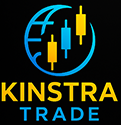A bipartisan group of US Senators has launched new laws, dubbed the “Artwork Market Integrity Act”, which might require artwork market companies working within the US to adjust to measures to stop cash laundering and the financing of terrorism. If adopted, the laws would deliver the US artwork market—the world’s largest, accounting for 43% of world artwork gross sales, or $24.8bn, in response to the latest version of Artwork Basel and UBS’s Artwork Market Report—extra carefully in step with the UK and European Union, which have adopted stricter anti-money-laundering (AML) rules lately.
Within the bitterly divided US Congress, the proposed AML laws is a uncommon occasion of bipartisan collaboration. The act was launched on Wednesday (23 July) by a bunch of six Senators together with three Democrats (John Fetterman of Pennsylvania, Sheldon Whitehouse of Rhode Island and Andy Kim of New Jersey) and three Republicans (Chuck Grassley of Iowa, Invoice Cassidy of Louisiana and David McCormick of Pennsylvania).
“There may be bipartisan curiosity in shining mild into the murky world of artwork dealing,” Senator Whitehouse stated in an announcement. “Kleptocrats, international adversaries and different unhealthy actors abuse the opaque nature of the high-end artwork market to evade American sanctions and stow their loot behind the rule of legislation.”
Senator Grassley added: “For many years, prison enterprises have used America’s multibillion-dollar artwork business as a private piggy financial institution for cash laundering schemes, terrorist financing and different nefarious actions. By requiring our nation’s artwork market to adjust to current anti-money laundering and counter-terrorism financing legal guidelines, this bipartisan laws would preserve artwork, and hundreds of thousands of {dollars}, out of the improper fingers.”
Some extent of concern within the UK has been how such measures—which might require companies to observe know your consumer (KYC) and buyer due diligence (CDD) steps, and preserve data of their AML programmes—have added to the executive burden for smaller companies since coming into impact in early 2020. How such rules apply to artwork advisors, or abroad sellers travelling to the UK for artwork festivals, have been topics of confusion within the commerce.
“It’s comprehensible for smaller art-related companies to be unsure and maybe nervous concerning the further price and assets wanted to implement AML programmes, and that concern partially might come from lack of expertise with any such management course of within the artwork market,” says Jane Levine, a accomplice and co-founder on the New York-based agency The ArtRisk Group. “It is rather necessary to keep in mind that a wise risk-based method will establish the elements of your online business that might be susceptible to unhealthy actors, in addition to these posing little or no threat. That info helps craft an AML programme that’s proportional, lean however efficient and never overblown.”
The US Senators’ five-page act outlines necessities that might apply to sellers, collectors, galleries, public sale homes, advisers and, oddly, museums. It will exempt artists who promote their very own works, in addition to companies and people that haven’t made a single sale of greater than $10,000 or transactions totalling over $50,000 within the earlier yr.
Levine provides: “Additionally it is necessary to undertake a long-term method and understand that the small upfront funding in establishing primary AML practices—which may contain easy steps resembling acquiring and recording identification of transacting events and paying attention for suspicious conduct—is so much cheaper than the price of defending an AML investigation, potential penalties and fines, and reputational price.”
The proposed laws specifies that the brand new artwork market rules would come underneath the Financial institution Secrecy Act, which empowers the Division of Treasury to manage companies and monetary establishments. The Treasury, then, can be chargeable for setting steerage on compliance and coordinating with related federal businesses. It will additionally, presumably, set the phrases of any penalties or fines levied for non-compliance; within the UK, greater than 30 companies had been fined over the course of somewhat greater than two years for failing to register with an AML supervisory physique or present info by specified deadlines.
A examine printed by the US Treasury Division in 2022 “discovered some proof of [money-laundering] threat within the institutional high-value artwork market however discovered little proof of [terrorism funding] threat”. Its authors concluded that making use of complete AML and counter-terrorism financing (CTF) measures to “some artwork market contributors” was one in every of a number of potential options, however added that “the artwork market shouldn’t be an instantaneous focus for the imposition of complete AML/CTF requirement”.
The senators launched their Artwork Market Integrity Act somewhat over every week earlier than the US Congress goes on a month-long break, so it’s unlikely to be taken up earlier than September on the earliest.









